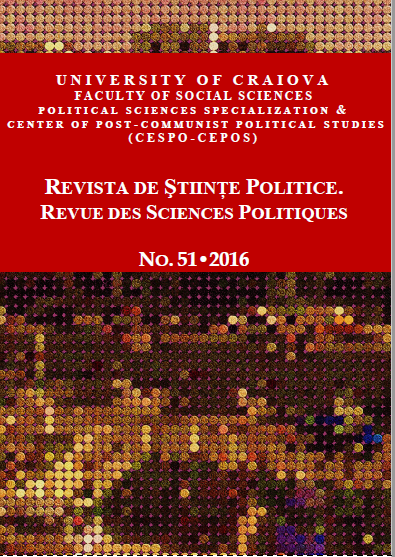Marxism and democracy: a new approach to comprehending the relationships between intellectuals and politics by examining the life and works of the Brazilian “activist” and theoretician Francisco Weffort
Marxism and democracy: a new approach to comprehending the relationships between intellectuals and politics by examining the life and works of the Brazilian “activist” and theoretician Francisco Weffort
Author(s): Rafael Marchesan Tauil, Terrell Foster CarverSubject(s): Political history, Marxism, Government/Political systems, Post-Communist Transformation
Published by: Editura Universitaria Craiova
Keywords: Marxism; Post-communism; Democracy; Intellectuals; Francisco Weffort;
Summary/Abstract: Our aimin this article is to explore the role played by Francisco Weffort in the intellectual and political field before and after the left-radicalization between the 1960’s and the 1980’s in Brazil. His initial intellectual formulations departed from a radical Marxist/‘class-ist’ perspective by arguing for the necessity for a drastic rupture of the Brazilian political and economic system. His ideas indirectly contributed to the Brazilian politics in two ways: in favor of the armed struggle against the military dictatorship; in favor of the foundation of a “new kind of politics” able to overwhelm the archaic Brazilian political tradition, having as its main consequence the foundation of the Partido dos Trabalhadores – PT (Workers’ Party) in 1980.Weffort helped to found the PT, which had a radical socialist orientation, but with the end of the Brazilian dictatorship in 1980 and the fall of the Berlin Wall in 1989, Weffort’s theories changed substantially. He began to privilege democratic representative institutions instead of a communist/socialist voluntarist activism. Our intention is to use a new analytical perspective to evaluate Weffort’s influence in the political processes. We have as assumption the idea that he played a role less as a university researcher than as a “public intellectual,” energizing Brazilian left-wing political practice. We are leaving aside for a time his textual production regarded in strict academic terms, and in contrast taking into account his political role during the decay and collapse of the USSR. We will demonstrate that as a “public intellectual” his formulations contributed to the foundation of the PT and informed the role taken by some left-wingers in the armed struggle.
Journal: Revista de Științe Politice. Revue des Sciences Politiques
- Issue Year: 2016
- Issue No: 51
- Page Range: 24-38
- Page Count: 15
- Language: English

